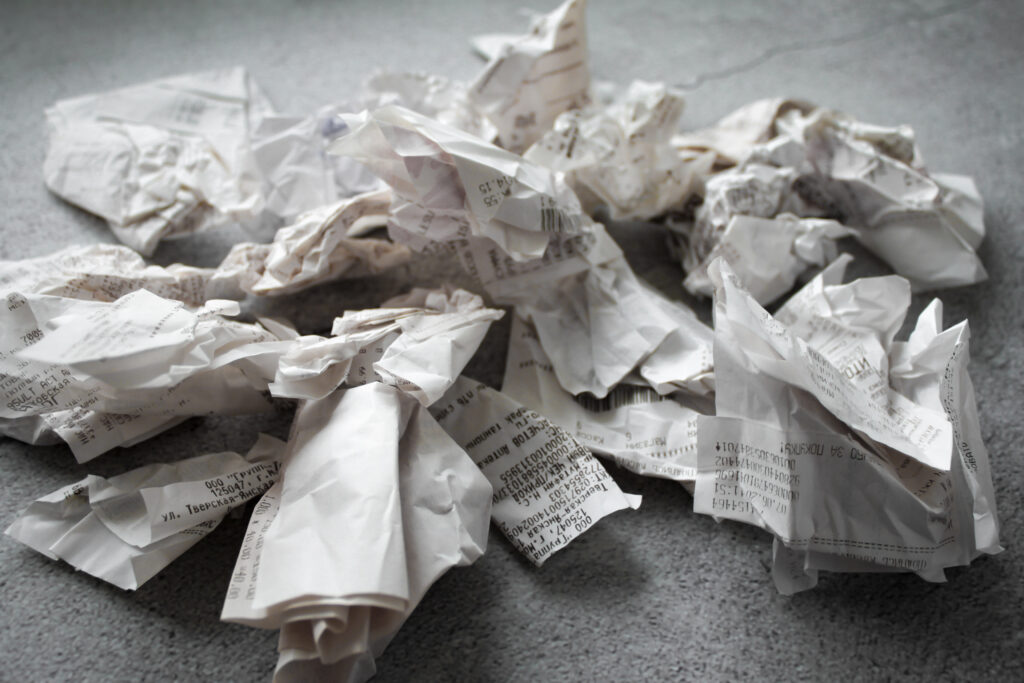The Crucial Role of Keeping Receipts for Your Taxes
Tax season can often be a stressful time for many individuals, but with proper organization and attention to detail, it doesn’t have to be overwhelming. One of the key practices that can significantly simplify the tax filing process is keeping receipts and records. In this blog post, we will delve into the importance of maintaining proper documentation and explore how it can benefit you during tax time.
Keeping receipts and records allows you to maintain an accurate record of your expenses throughout the year. It serves as concrete evidence of your financial transactions, helping you track and categorize deductible expenses efficiently. Whether it’s business-related expenses, medical bills, charitable contributions, or education-related costs, the tax-man requires proper documentation to support your claims.
Honesty & Organization Is Your Best Defence
By organizing your receipts and records, you can provide an accurate account of your expenditures, reducing the risk of errors or omissions in your tax return. This attention to detail will not only save you time but also help you maximize your eligible deductions and minimize your tax liability.

Safe Record Keeping Goes A Long Way
Even the most honest taxpayers can be subjected to an audit by the CRA. An audit is an in-depth examination of your tax return to verify the accuracy of the information you provided. In such situations, comprehensive documentation becomes your strongest defense. By maintaining receipts and records, you can substantiate the information on your tax return, providing proof of your income, deductions, and credits. Without proper documentation, you may face challenges defending your claims, leading to potential penalties, interest, or additional tax owed. Thus, keeping accurate records serves as a protective shield in case of an audit.
Tax laws are complex and subject to change, which is why it is crucial to stay informed and compliant. Maintaining receipts and records not only helps you organize your finances but also ensures you follow the regulations set forth by the tax authorities. Proper documentation is essential for claiming deductions, credits, exemptions, and any other tax benefits you may be entitled to. By keeping thorough records, you can provide evidence that you meet the criteria for specific tax breaks, making it easier to navigate the ever-evolving tax landscape.
Facilitating Tax Planning and Financial Management
Keeping receipts and records is not only important for tax purposes but also for effective financial planning and management. Regularly tracking and organizing your expenses allows you to gain insights into your spending patterns, identify areas of potential savings, and make informed decisions about your finances.
By analyzing your records, you can identify tax-saving opportunities, plan for upcoming expenses, and establish budgets. The availability of accurate financial records helps you assess your financial health, set realistic goals, and make adjustments as needed. In this way, proper record-keeping becomes an essential tool for your overall financial well-being.
Due Diligence & Beyond
Keeping receipts and records may seem like a mundane task, but its importance cannot be overstated. The benefits of maintaining proper documentation extend beyond tax season, allowing you to effectively manage your finances, maximize deductions, and protect yourself in the event of an audit. By embracing this practice, you can gain peace of mind, save valuable time, and ensure compliance with tax laws. Remember, good record-keeping is the foundation of a successful tax-filing process and a healthier financial future.


